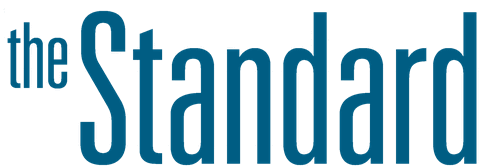Getting the most out of QA Assessment
When Katrina Blanchard received the email in April 2022 saying CNO had selected her for Quality Assurance (QA) Assessment, she immediately felt nervous.
As a Nurse Practitioner (NP) at Windsor Regional Hospital, Blanchard was concerned about what it would feel like to have someone reviewing her practice, especially when the health care system and all health care professionals continue to face challenging and unsettling times.
All nurses are accountable for reflecting on their practice on an ongoing basis, to keep their knowledge, skill and judgment up-to-date. Practicing QA every day, which includes reflection and developing a Learning Plan, is one way nurses provide safe quality care to their patients.

Katrina Blanchard, NP, at Windsor Regional Hospital
“I was very anxious and a little bit terrified.”
Twice a year, CNO randomly selects a group of nurses like Blanchard for QA Assessment. This process includes further practice reflection, submitting a Learning Plan, assessment activities, optional peer coaching and a review.
When Blanchard saw she had been randomly selected, she was apprehensive at first.
“I was very anxious and a little bit terrified,” Blanchard said. She explained she was worried about her day-to-day practice decisions being evaluated, or that the QA Assessment process would have a disciplinary approach that might feel confrontational.
However, after taking a closer look, as well as reading the accompanying materials that guide QA Assessment including templates, resources to help develop learning plan goals and examples, Blanchard began to feel more at ease.
“It was very much communicated through this package that it was a learning opportunity and not a disciplinary program. They wanted to ensure your success with it,” she said.
For Blanchard, the timing was good and she embraced the program. She took part in a virtual information session that all QA Assessment participants are invited to, so she could better understand the program. And she said she found the reflection activities to be refreshing, not onerous.
Blanchard said she can be critical of herself at times because she wants what’s best for her patients. She said QA Assessment allowed her to mentally take a step back and think about her nursing practice in a different way, so she could gain a greater perspective. “The reflection allowed me to look at all the good work I do, too.”
“It was very much communicated through this package that it was a learning opportunity and not a disciplinary program. They wanted to ensure your success with it,” she said.
QA Assessment activities are evaluated on a “satisfactory” or “unsatisfactory” basis, and for one activity, CNO asked Blanchard to re-submit one of the examples she provided. At this point she received the support of a peer coach, who is also a practicing NP, and she found the guidance to be “very helpful.”
“She was very available,” Blanchard said of her coach, who helped walk her through the program. After reflecting on her practice further, Blanchard wound up submitting a different example and received the “satisfactory” evaluation to exit the program.
While she was nervous at first, Blanchard found the program reminded her of the value of practice reflection on an ongoing basis. “It’s beneficial, especially when you get bogged down with the daily stresses of nursing,” she said.
She encourages other participants of QA Assessment to take advantage of the tools, resources and coaching available along the way. “Take advantage of all the support that’s offered. It’s reassuring and helps shift your mindset from nervous to positive.”
If you have questions about QA Assessment, email us at QAassessment@cnomail.org. You can also read our QA frequently asked questions for more information.


